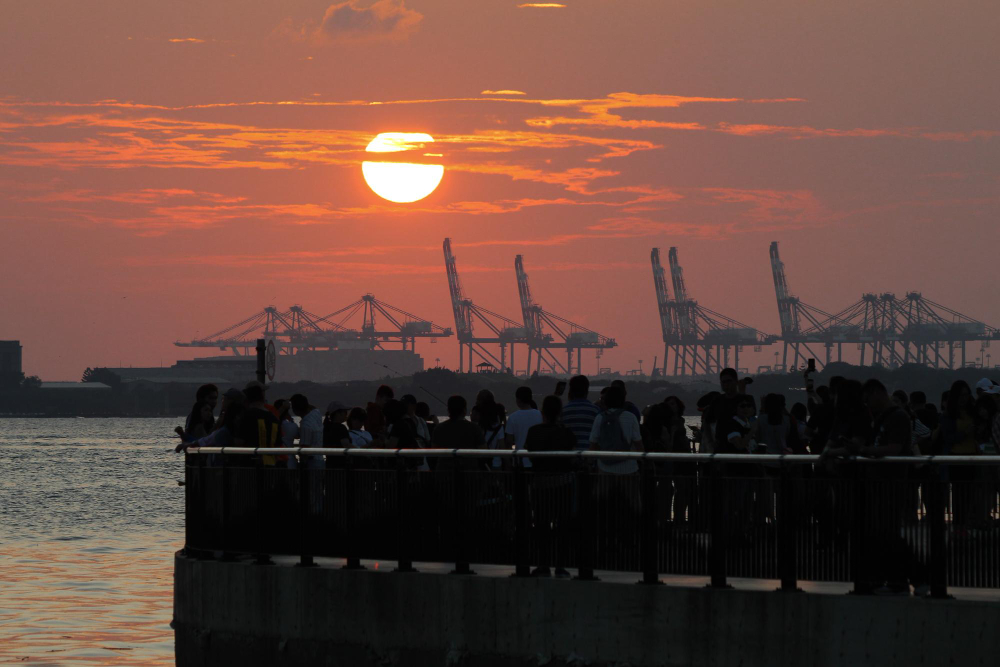India and Iran have finalized a long-term agreement for the Chabahar Port following years of negotiations.
India and Iran have concluded a long-term contract for the development of the Chabahar Port after extensive negotiations spanning several years. Leading a high-level delegation, India's Minister for Shipping, Sarbananda Sonowal, visited Iran to formalize the agreement, marking a significant milestone in the strategic partnership between the two nations.
The agreement, signed between Indian Ports Global Limited (IPGL) and the Port & Maritime Organization (PMO) of Iran, facilitates the operation of the Shahid Beheshti terminal at Chabahar Port for a duration of 10 years. This replaces the previous practice of signing one-year contracts to maintain port operations, which had been a deterrent for shippers seeking a more stable arrangement.
During the signing ceremony in Tehran, Minister Sonowal emphasized the historic importance of the agreement, highlighting its potential to enhance trade, maritime cooperation, and transshipment activities among India, Iran, and Afghanistan. He underscored the pivotal role of Chabahar Port as a vital trade link connecting India with Afghanistan and Central Asian countries, promoting regional economic development and supply chain resilience.
Furthermore, External Affairs Minister S Jaishankar expressed optimism about the agreement's potential to attract significant investments on the Indian side. He emphasized that the establishment of a long-term arrangement would facilitate larger investments in ports, paving the way for enhanced connectivity and economic growth.
Under the agreement, India will procure various equipment necessary for expanding port operations, such as reach stackers and forklifts. This initiative is expected to create new trade and investment opportunities, contributing to India's economic development.
Overall, the long-term contract for Chabahar Port signifies a renewed commitment to strengthening bilateral ties and fostering economic cooperation between India and Iran.
Strategically situated in Iran's Sistan-Baluchistan province on the southwestern coast, Chabahar Port holds significant importance as a key maritime hub on the Arabian Sea, offering convenient access from India's western coast. With Kandla port in Gujarat being the nearest port at a distance of 550 nautical miles, and Mumbai lying 786 nautical miles away, Chabahar Port has emerged as a crucial gateway for maritime trade activities.
Since 2019, the port has witnessed substantial cargo traffic, handling over 80,000 twenty-foot equivalent units (TEUs) of container traffic and more than 8 million tonnes of bulk and general cargo. Moreover, the port serves as an alternative route for cargo traffic between Central Asian countries and Afghanistan, offering diversification from the congested Strait of Hormuz and enhancing India's strategic positioning in the region.
Chabahar Port's integration with a special free zone further enhances its appeal, complemented by India's incentives such as concessions on vessel-related charges and cargo charges, which incentivize trade flows through the port, fostering economic growth and cooperation.
Crucially, Chabahar is envisioned as a pivotal node in the eastern route of the International North-South Transport Corridor (INSTC), facilitating seamless movement of goods between India and Central Asian countries. This collaborative effort between India and Iran in developing infrastructure and logistics along the 7,200-km INSTC aims to reduce transportation costs and time, thereby promoting trade between the regions.
India's involvement in the development of Chabahar dates back to 2003 when an agreement was reached during Iranian President Muhammad Khatami's visit to India. However, progress was slow until 2013 when India committed $100 million for Chabahar's development. Despite challenges posed by sanctions on Iran, a memorandum of understanding (MoU) was signed in May 2015, with the contract executed in Tehran on 23 May 2016, outlining India's investment of $85 million in the development of Chabahar's Shahid Beheshti terminal.
The recent agreement aims to further enhance regional connectivity and facilitate trade, particularly among India, Iran, and Afghanistan. India Ports Global Chabahar Free Zone (IPGCFZ), a subsidiary of IPGL, facilitated the first consignment of exports from Afghanistan to India in 2019. As negotiations on the Long-Term Agreement gained momentum, marked by Minister Sonowal's visit to Chabahar in August 2022, operations continued through short-term contracts.
Negotiations hit a roadblock due to disagreements over arbitration clauses. Previously, it was reported by Mint that both parties have found common ground, allowing arbitration under the rules set forth by the UN Commission on International Trade Law (UNCITRAL).
The agreement holds particular significance amidst ongoing geopolitical tensions in West Asia. Recent confrontations between Iran and Israel, including military clashes and missile attacks, have escalated regional instability. India has expressed concerns over rising tensions, maintaining diplomatic dialogue with Iran on various issues, including attacks on India-linked ships by Yemen's Houthi rebels, who are believed to have affiliations with Iran.
Beyond its strategic value, Chabahar Port harbors significant revenue-generating potential. In the first half of FY24, container cargo handling at the Shahid Beheshti terminal reached 25,788 TEUs, with bulk cargo handling approximately 1.5 million metric tonnes (mt).
India's investments mark its first foray into such overseas infrastructure ventures. Currently, the port's cargo handling capacity stands at 8 mt, with plans underway to expand it to 18 mt in the next phase.
India aims to bolster its presence in critical infrastructure along the Persian Gulf route. The Adani Group already operates the Haifa port in Israel, and further port deals involving Indian entities are anticipated in the region. For 2023, India targets a cargo handling volume of 13,282 TEUs at the Shahid Beheshti terminal, up from 3,096 TEUs in 2022.
Experts predict a significant increase in cargo volume if the port is integrated into the rail network. India is actively engaged in constructing the 700-km Chabahar-Zahedan railway line, with an MoU signed in 2016 between Indian Railways' IRCON and Iran's Construction and Development of Transportation Infrastructures Company (CDTIC) for the project.
India's substantial investment plans in Iran, particularly centered around the Chabahar Port, provide strategic leverage over China and Pakistan. Located approximately 170 km from Pakistan's Gwadar port, Chabahar offers India a strategic advantage. In the FY22 union budget, the finance ministry allocated ₹100 crore for the development of Chabahar Port.

